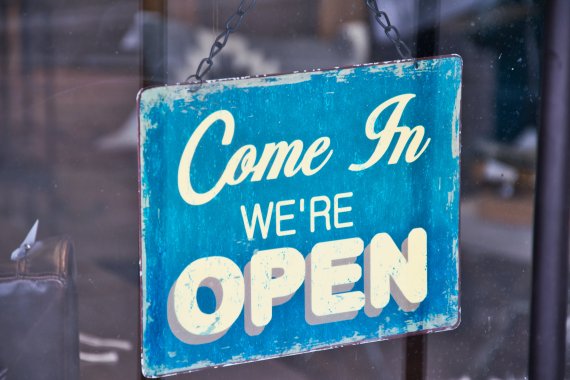
Our willingness or unwillingness to buy is an important key to reviving the economy. At the same time, the corona pandemic is leading us to be more cautious and shop less. Retail expert Boris Hedde has been Managing Director of the Institute for Retail Research (IFH) Cologne since 2009. During the Coronavirus crisis, he is intensively involved with consumer behaviour, relentlessly exposing misconceptions of the retail industry and saying: «our customer data will become much more important in stationary retail». To ISPO.com he explains what will determine our buying habits in the future and how sports and outdoor retailers can best retain their customers.
ISPO.com: The topic of solidarity is very present in the current corona crisis. You have dealt with local marketplaces, which have experienced an unexpected comeback in the Corona crisis. The motive: consumer solidarity with local retailers. How solidary are consumers really?
Boris Hedde: The local online marketplaces were created in the hope of helping each other in times of need. The desire to help was actually felt everywhere. There are now over 60 of these marketplaces in Germany alone. So we investigated how many consumers use the offer? The result: twelve percent - mainly young consumers. Is that a lot or a little? We don't think it is a lot, considering the offer would have been particularly interesting for the target groups at risk. Obviously they didn't use it. In other words, although consumers wanted to help, the majority of them did not.
Why didn't it work out with the help? What does that tell us about the consumer?
In the regional online marketplaces, the focus was on pure product availability. In fact I don't think consumers had problems getting the products. On the level of product availability, Amazon cannot be beaten. If we look at how strong Amazon and Amazon Prime have become, it becomes clear that we have more and more blinkered consumers who are not even looking for alternative suppliers.
Local marketplaces have existed for a long time. The idea was that regional trade should participate in online trading. This didn't work out - even before the Coronavirus crisis, because the customers don't want to buy online from the local retailer. here is simply no choice. The concept had been developed from the context of the retailer rather than from the consumer's perspective. The consumer has other interests.
What are they?
I think there are still good opportunities in the further development of locality. The question is, what added value can I play out locally? If you ask consumers, they would like to go to the city but the access would have to be made easier for them. They may want more parking spaces, new services, the simplification of processes. Here in Cologne, we are currently experimenting with local loyalty systems, not in terms of discounts but in local charity projects for kindergartens or tree planting campaigns. The added value is the strengthening of identification with the location, and this can be a new opportunity right now: If everyone is conditioned to keep their distance now, the need for social participation will grow in the medium term.
How should stationary traders in the sports- and outdoor-industry adapt to the new conditions?
The pure product focus is outdated, we need a new perspective with more proximity to the customer. What does true customer focus mean? We have to say goodbye to the idea that it's all about choosing the right product range, it is rather about combining sales with emotional elements. On the other you have to learn to really understand the customer journey. The chain is indeed long: from the online channel to the shop window to the store. Customer data will become much more important in stationary retail. They will help to transfer the same conversion-oriented thinking from online retail to the stationary store. Why are there purchase cancellations in stationary trade? Collecting this information is common practice in online retailing, but very little is known about it in stationary retail. The question is more than ever: How can we transfer and use key figures from online trading to the stationary world?

What are the consumers thinking at the moment? How is the crisis changing their needs?
Consumers are coming to the city centers, very much driven by demand. Nobody is coming to be inspired. But there are exceptions: For example, balcony furniture is going very well right now. In all crises we see the cocooning effect, where people try to make themselves comfortable at home. Or the lipstick effect, which says that consumers are more willing to buy affordable luxury goods in an economic crisis. So instead of buying expensive outfits, they buy an expensive lipstick.
There is a lot of talk about the chances of the crisis, about people starting to consume more consciously, e.g. less Amazon, more specialist shops, fewer cheap products, more quality, more sustainable products. Can this be ascertained?
We will have to differentiate how the crisis develops. In the past, the question was: Do I buy conventionally or sustainably? The new question at the moment is rather: do I still buy at all? That would also be a sustainable position. And as far as Amazon is concerned, we have very comfortable customers out there. Giving up convenience is the hardest thing of all.
Does this mean that the crisis is not promoting a change in values among consumers?
If purchasing power and willingness to spend are there, values will play a major role in the future. But in the area of sustainability, too, many developments have not been thought out from the consumer's point of view, for example the many certifications that do not provide more clarity for the purchasing decision. Consumers have always said that they want more sustainability, but have not bought like this. Perhaps we were thinking in the wrong direction. For manufacturers and retailers, sustainability has always been based on the premise that the customer always wants something new. This was never questioned, perhaps it was wrong. Perhaps he would rather not consume at all than always buy new sustainable products.
In the process, new models become attractive, e.g. re-commerce, upcycling, etc. Not only the acceptance of Second-Hand is increasing but it is even considered chic - independent of the purchasing power. I am curious to what extent Corona influences these concepts. It should also be examined whether services such as delivery, packaging etc. can be sustainable. This could represent a new potential for addressing customers.
Much will depend on how the coming weeks develop. What scenarios are you assuming?
We have just developed a future scenario 2030 and have calculated various positions. Depending on how the economic environment develops, we are assuming four different scenarios: Firstly, we will see a return to a very strongly functional retail sector that focuses on supply and favours retail formats such as discounters. In the second scenario, we see a convenience world that is strongly driven online and has a high price affinity. Scenario three we call 'Relax Retail'. Here, the aim is to include more emotional aspects both online and offline. And finally: 'Local Retail'. Here the focus is on locality and emotionality - also with the need for stationary touchpoints. The scenario that comes true depends on how the economy develops.
To what extent will consumer typologies change with Corona?
Typologies are always time-related and of course they are currently changing. In the future, we will have specific corona typologies that can be addressed in different ways, for example with regard to the issues of loneliness or health. In other words, we will integrate new facets.
Every crisis has produced new retail formats. The discount market is a post-war phenomenon. Events around ecology were the basis for sustainable concepts up to the unpackaged store. After the crisis, interpersonal relationships will bring new opportunities - also for new retail formats, I am convinced.
- Awards
- Mountain sports
- Bike
- Fitness
- Health
- ISPO Munich
- Running
- Brands
- Sustainability
- Olympia
- OutDoor
- Promotion
- Sports Business
- Textrends
- Triathlon
- Water sports
- Winter sports
- eSports
- SportsTech
- OutDoor by ISPO
- Heroes
- Transformation
- Sport Fashion
- Urban Culture
- Challenges of a CEO
- Trade fairs
- Sports
- Find the Balance
- Product reviews
- Newsletter Exclusive Area
- Magazine






